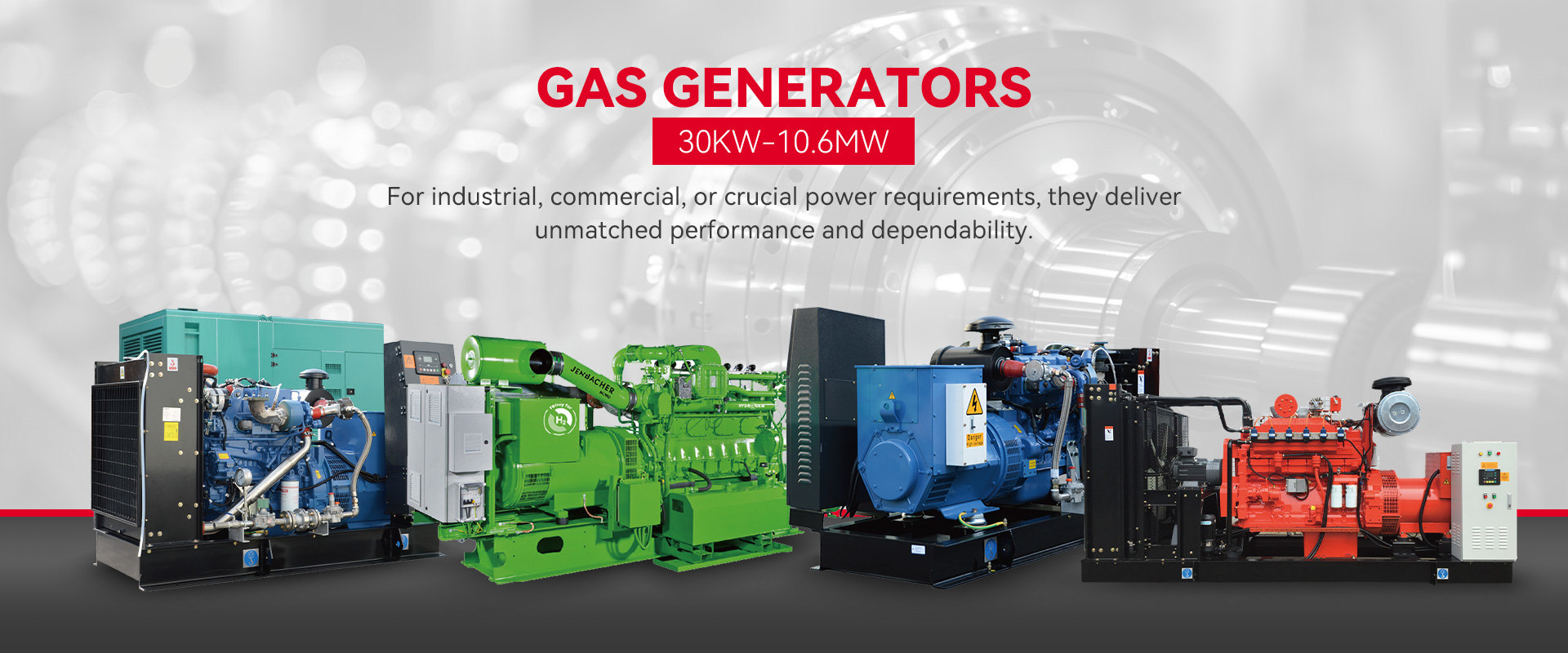Natural Gas Or Diesel: Which Generator Set Is Best For You?
In the arena of backup power generation, two prominent options stand out: gas main and diesel generators. If the power goes out, along with the requirement for it is critical, choosing the right generator set can make a huge difference. But wait, how do you decide between gas main and diesel generators? Each one has its very own list of pros and cons, and the choice ultimately is dependent upon your specific needs and circumstances.

In the following paragraphs, we’ll look into the distinctive features, advantages, and drawbacks of gas and heavy duty diesel generators sets, enabling you to create a well-informed decision where option aligns best with your needs.
Gas main Generators
Advantages
Cleaner Emissions: One of the primary benefits of gas main generators could be the lower environmental impact. When gas burns, it creates fewer harmful emissions, for example particulate matter, nitrogen oxides, and sulphur dioxide, than the diesel genset. This will make gas generators a greener choice for those worried about air quality and environmental sustainability.
Cost-Effective Fuel: Natural gas can often be more affordable than diesel fuel. The price savings can be significant in the lon run, particularly if you plan to takes place generator frequently. Furthermore, the production of natural gas tends to be more stable, reducing price fluctuations.
Less Maintenance: Propane generators typically require less maintenance than their diesel counterparts. This is a result of the cleaner-burning nature of propane, which results in fewer deposits and soot buildup inside the engine, extending the generator’s lifespan.
Quieter Operation: Natural gas generators are known for their quieter operation. This is a vital consideration in residential areas and settings where noise pollution has to be minimized.
Disadvantages
Limited Fuel Storage: A disadvantage of gas generators is their reliance upon a nonstop way to obtain natural gas. This can be problematic during extended power outages or in remote places that an even propane supply is probably not available.
Lower Energy Density: Natural gas has a lower energy density compared to diesel, meaning you could need a larger storage capacity or more frequent refuelling for the same output.
Lower Fuel Efficiency: Propane generators are generally less fuel-efficient than diesel generators, which could increase operational costs ultimately.
Lower Portability: Due to the dependence on a separate gas supply, these generators are less portable and versatile than diesel generators.
Diesel Generators
Advantages
High Energy Density: Diesel fuel is renowned for its high energy density. What this means is diesel generators can offer more power inside a smaller package, making them suitable for applications where space is bound.
Fuel Storage: Diesel generators have the good thing about being able to store fuel longer periods without degradation. This may cause them a dependable selection for backup power in remote locations and in long-term power outages.
Fuel Efficiency: Diesel generators are known for their fuel efficiency, consuming less fuel for a similar output as natural gas generators. This leads to lower operational costs.
Greater Reliability: Diesel engines are normally more robust and sturdy, resulted in greater reliability in demanding conditions. They can be the go-to decision for mission-critical applications.
Disadvantages
Emissions and Environmental Impact: Diesel generators emit higher levels of pollutants, including nitrogen oxides and particulate matter, which could have side effects on air quality and public health. Stricter emissions regulations are already performed to mitigate these issues.
Noise Levels: Diesel generators are usually noisier than gas generators, which may be a problem in areas or where noise pollution can be a consideration.
Fuel Availability and value: Diesel fuel could be more costly and at the mercy of price fluctuations. Additionally, storing large volumes of diesel fuel can pose safety and environmental risks.
Maintenance Requirements: Diesel generators typically require more frequent maintenance because of soot and carbon buildup inside the engine, which can improve the price tag of ownership.
When you Choose Gas main Generators?
Environmental Concerns: If you prioritize environmental sustainability and cleaner emissions, an organic gas generator will be the approach to take.
Cost Savings: If you’re planning to reduce fuel costs in the lon run and possess use of the best gas supply, propane generators may be more cost-effective.
Quiet Operation: In residential areas or places where noise levels must be kept to a minimum, gas generators will be the quieter choice.
More uncommon Use: In case your generator works as a backup for infrequent power outages, the bottom maintenance requirements of propane generators make them an opportune option.
When you Choose Diesel Generators?
High Power Requirements: If you want a high-power output in a compact package, diesel generators, making use of their high energy density, include the better option.
Reliability: For mission-critical applications where reliability is vital, including data centres or healthcare facilities, diesel generators in many cases are preferred this can robust and sturdy engines.
Remote Locations: In areas with limited access to a natural gas supply or during long-term power outages, diesel generators making use of their reliable fuel storage will be the better choice.
Frequent Use: In case your generator might find frequent use and also you prioritize fuel efficiency, diesel generators might be more economical over time.
Conclusion
The choice between natural gas and diesel generators is dependent upon your unique requirements, budget, and environmental concerns. Both types of generators have their benefits and drawbacks, along with the key is to carefully evaluate your requirements and priorities before you choose. Additionally, make sure to understand local regulations and emissions standards that will affect your decision.
More information about Jenbacher spare parts take a look at this useful web portal
